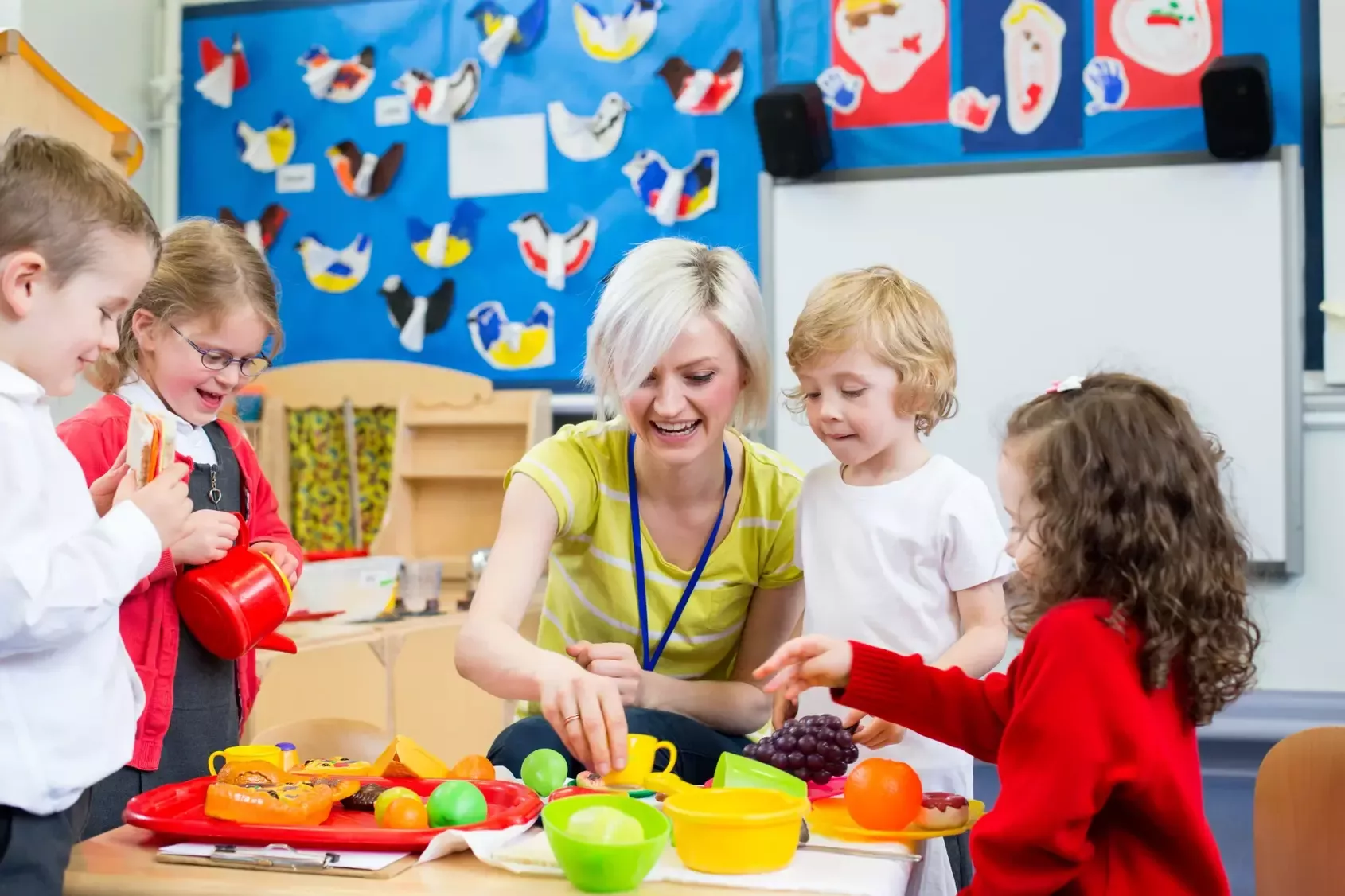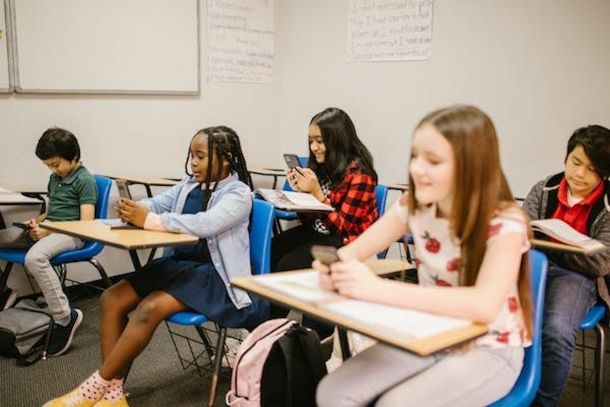
Growth mindset: the key to successful teaching?
Teachers with a growth mindset play a key role in children's development, they are more open and more easily able to create an environment conducive to learning.
Promoting a flexible mindset in students is a priority for education systems, but it is equally important to understand the mindset with which teachers operate in the classroom.
"Everyone is born with an intense desire to learn. Babies train their skills every day, learn to walk, learn to talk, discover themselves and the world around them without thinking about effort, failure and success. They are constantly trying, making mistakes, picking themselves up and starting again, and that should be an essential lesson for adults too." says Carol Dweck, a psychologist and theorist at Stanford University.
Carol Dweck's research, as well as her book Mindset: The New Psychology of Success, (2006) has popularised the concept of fixed mindset and growth mindset and has challenged the significant differences between these two perspectives.
Growth mindset: what it is and why it is important?
One theory of human intelligence argues that people can be classified according to the implicit beliefs they hold about their own abilities. People with a fixed mindset believe that abilities are innate, that they are static and that they cannot change over time. People with a flexible mindset believe that skills are dynamic and can be acquired through effort and study. People who operate predominantly with a flexible mindset are more open to cooperation, handle failure better, understand that failure is a stage in the learning process, are more willing to try new things and get out of their comfort zone, whereas people with a fixed mindset prefer comfort, are content with a narrow set of skills and are unable to overcome the frustration that results from failure.
These two mindsets exist in each of us, but we choose to use predominantly one of them. Even those who have the dominant growth mindset may, in certain contexts and circumstances, resort to the fixed mindset, and this is perfectly normal and natural.
The good news? The flexible mindset is learned through practice and anyone can end up using it as often as possible, in as many contexts as possible.
The benefits of a growth mindset
Carol Dweck's early research demonstrated the many potential benefits of encouraging a flexible mindset in education. One of her studies demonstrated that it is more valuable for children to receive encouragement in relation to the effort they have put in (process focus), in relation to their perseverance and strategy rather than in relation to their level of intelligence. This encouragement helps young children not to feel embarrassed when they make mistakes and to be more courageous in taking on more complex tasks.
In her TED TALK, Dr Carol Dweck, talks about a study in which children were taught that as they push themselves to the edge of their comfort zone, their brains can form new, stronger neural connections. Her studies have shown a significant improvement in achievement across a wide range of age groups and backgrounds.
The growth mindset has been widely adopted within and outside of education; research continues to advance, and the evidence for the benefits of a flexible mindset in education continues to mount. Carol Dweck's findings suggest that students will learn more, faster and more thoroughly if they have a flexible mindset.
Adopting a growth mindset is not only beneficial for students. Promoting a flexible mindset among teachers, carers and parents can bring real benefits to the whole educational process.
According to Jackie Gerstein, teachers, like the students they teach, can learn to develop a flexible mindset, but this requires careful planning on the part of school leadership. The most obvious way to train a flexible mindset in teachers is by providing varied contexts in which they can practice it.
Gerstein has organised a series of professional development courses aimed at training teachers on how to model a flexible mindset among their students. One of the key principles was to encourage teachers to see themselves as learners, and just as students are all capable of learning and improving, so could they. Participating teachers understood that they could only support students in shaping a growth mindset by providing positive examples of this. Teachers also understood that using a flexible mindset will help them in all contexts of their lives, not just at school.
When both teachers and students practice a growth mindset, the whole learning process becomes better. Carol Dweck points out that when we praise students for how smart they are, we are helping them raise their self-esteem, but we may actually be encouraging them to develop a fixed mindset - which could limit their learning potential. Therefore, the feedback that a flexibly minded teacher provides focuses on the work that students have done, throughout the process they have engaged in; this helps to maximise potential.
5 superpowers of a teacher with a growth mindset:
- Takes responsibility for improving classroom practices;
- Sees failures and feedback received from others as opportunities to learn and develop and improve skills;
- Has a high appetite for learning and actively seeks out new opportunities and challenges;
- Has real, positive and high expectations for his/her students;
- Is active, focused and aware of the process of developing a flexible mindset and seeks to perpetuate this outlook in his students.
Tips & Tricks for a growth mindset
1. When we want to shape a flexible mindset we need to understand that it is important to value the process more than the outcome. Valuing process over outcome can be difficult in an outcome-focused environment, but teachers and educational leaders who value the flexible mindset and its long-term benefits are more likely to stay on track;
2. Teachers need to seek out, try and apply different teaching methods and varied learning strategies to help students build the skills they need. Teachers who embrace a flexible mindset and often step out of their comfort zone adapt more quickly to new challenges and easily find new strategies to achieve their goals;
3. Finding the right teaching strategies that reach students and help them learn new skills should be celebrated with students and other teachers. This reinforces the emphasis on effort and process. It also provides opportunities to share valuable learning within the school community;
4. The flexible mindset should be promoted throughout the educational institution. Sharing successes and failures between teachers and leaders helps to establish a culture that values challenges and promotes a flexible mindset.
Using a growth mindset brings countless benefits to the school community and the teaching-learning process. Here are some conclusions on the importance of promoting a flexible mindset among both students and teachers.
How technology helps you cultivate a growth mindset and provide a healthy role model for students and for your own children
A growth mindset gives you a lifelong advantage because it is synonymous with professional and career development. As teachers and parents, we are the ones to provide our children with a model of continuous growth. One of the areas where our example can have an impact is the very relationship with technology. The way we use digital should be balanced, pragmatic, free from pathos, fear and anxiety.
At Kinderpedia, we've built a comprehensive and intuitive digital tool that helps teachers save between 6 and 9 hours a week of their administrative time. We allow them to channel their efforts where they matter most - towards the particular needs of each child. We help schools and kindergartens work smart and communicate efficiently with families. We support them in creating a dynamic and connected classroom, and automating financial activity.
Interested to discover how Kinderpedia can help your school or kindergarten? Schedule a demo for your team with one of our specialists.

Kinderpedia
The complete communication and management solution for schools and childcare centres.
Simplifies teachers' work and brings parents closer to their children's school progress.
Recommended articles
Want to improve your center quality? Kinderpedia is here to help! Not only do we provide thousands of informational content pieces like blog posts, podcasts, webinars and more, we are also makers of the #1 Rated and Reviewed Childcare Software.







